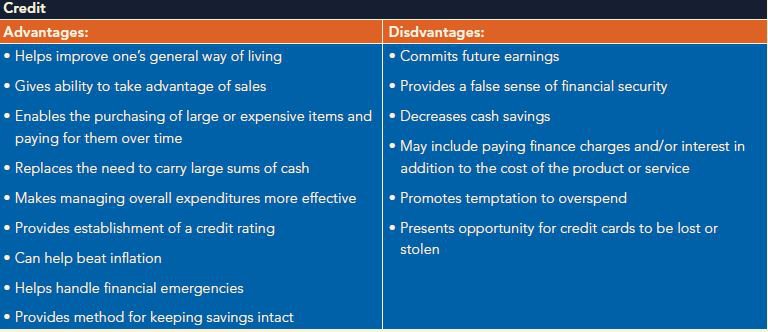Hybrid Line of Credit: Flexible Funding Options from Your Wyoming Credit Union
The Ultimate Guide to Comprehending Cooperative Credit Union
Credit scores unions stand as special monetary entities, rooted in principles of shared support and member-driven operations. As we navigate through the intricacies of credit scores unions, an insightful journey waits for to lose light on these member-focused establishments and just how they vary from standard banks.
What Are Lending Institution?
Cooperative credit union are member-owned economic establishments that use a variety of financial solutions to their members. Unlike typical financial institutions, credit scores unions operate as not-for-profit companies, indicating their main focus gets on serving their members as opposed to optimizing revenues. Members of a credit scores union usually share a common bond, such as functioning for the exact same company, belonging to the same area, or being part of the very same organization.
Among the crucial benefits of lending institution is that they usually provide greater rate of interest on cost savings accounts and reduced rate of interest on financings compared to financial institutions. This is due to the fact that cooperative credit union are structured to benefit their participants directly, enabling them to hand down their profits in the kind of much better prices and fewer charges. In addition, cooperative credit union are known for their customized customer support, as they focus on constructing connections with their participants to understand their distinct economic needs and goals.
History and Advancement of Lending Institution

The roots of member-owned monetary cooperatives, known today as credit report unions, trace back to a time when neighborhoods looked for alternatives to traditional financial establishments. The concept of lending institution originated in the 19th century in Europe, with Friedrich Wilhelm Raiffeisen usually credited as the pioneer of the participating banking activity (Credit Unions Cheyenne WY). Raiffeisen established the first identified lending institution in Germany in the mid-1800s, highlighting community assistance and self-help principles
The evolution of cooperative credit union proceeded in North America, where Alphonse Desjardins developed the first credit rating union in Canada in 1900. Quickly after, in 1909, the first U.S. cooperative credit union was created in New Hampshire by a group of Franco-American immigrants. These very early credit scores unions operated the fundamental principles of common assistance, autonomous control, and member possession.
In time, debt unions have actually expanded in appeal worldwide due to their not-for-profit framework, emphasis on offering members, and providing affordable economic product or services. Today, credit score unions play a vital role in the monetary market, giving accessible and community-oriented financial alternatives for people and businesses alike.
Membership and Eligibility Standards
Membership at a credit scores union is usually limited to individuals meeting certain eligibility requirements based on the institution's beginning principles and governing requirements. Some credit rating unions might only serve people who function or live in a certain location, while others may be customized to workers of a certain Hybrid Line of Credit business or participants of a particular organization.
Additionally, lending institution are structured as not-for-profit companies, suggesting that their main objective is to offer their members instead than create profits for investors. This emphasis on member service commonly translates into even more personalized interest, reduced costs, and competitive rate of interest on financial savings and loans accounts. By satisfying the qualification criteria and becoming a member of a cooperative credit union, individuals can access a variety of economic services and products tailored to their particular requirements.
Providers and Products Offered
Among the vital facets that establishes cooperative credit union apart is the diverse range of financial solutions and items they offer to their members. Credit scores unions generally supply standard banking services such as savings and checking accounts, lendings, and credit history cards. Members can also take advantage of financial investment services, consisting of pension and monetary planning support. Numerous lending institution provide competitive passion prices on cost savings accounts and fundings, in addition to lower charges contrasted to typical banks.
Moreover, cooperative credit union typically give practical online and mobile financial options for participants to conveniently manage their financial resources. They might use rewards such as shared branching, enabling members to access their accounts at other lending institution throughout the country. Some lending institution additionally provide insurance coverage items like home, life, and vehicle insurance coverage to assist participants shield their assets and loved ones.
Along with monetary services, cooperative credit union frequently engage in neighborhood outreach programs and monetary education and learning campaigns to sustain their participants in attaining their financial goals.
Advantages of Banking With Lending Institution
When thinking about economic institutions, checking out the advantages of banking with debt unions reveals special advantages for members seeking individualized solution and affordable rates. Unlike big financial institutions, credit score unions are member-owned and focus on structure strong connections with their members. In general, banking with a debt union can supply an extra customized, cost-efficient, and member-centric economic experience.
Conclusion

Credit scores unions are member-owned monetary organizations that use an array of financial solutions to their participants. The principle of credit rating unions come from in the 19th century in Europe, with Friedrich Wilhelm Raiffeisen commonly attributed as the leader of the participating banking movement.The development of debt unions continued in North America, where Alphonse Desjardins established the very first credit rating union in Canada in 1900. Credit score unions typically offer standard banking services such as savings and examining accounts, loans, and credit history cards.When thinking about financial institutions, discovering the benefits of banking with credit scores unions reveals unique advantages for members seeking personalized solution and competitive rates.